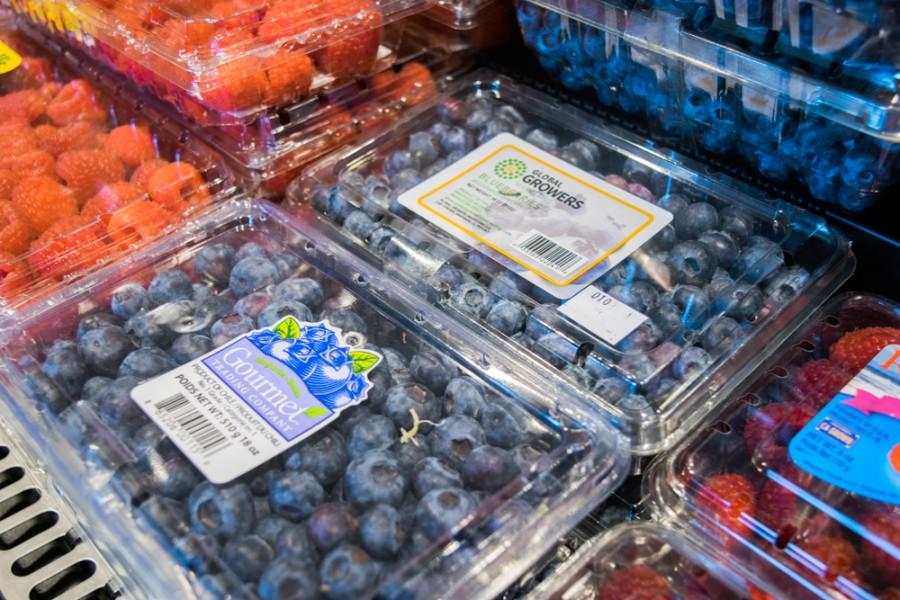Bad News for Walla Walla Blueberry Farmers
February 18, 2016
Some berry bad news was announced last week for Walla Walla farmers, who are required to pay over $400,000 in fines for labor violations.
The Washington State Department of Labor and local Walla Walla valley farms have come to an arrangement for charges against the farms for unethical work practices, including paying below the minimum wage, not paying overtime to workers and using shadow labor, or multiple laborers on one work ticket.
The Washington Department of Labor filed the case against Blue Mountain Farms LLC, Great Columbia Berry Farm LLC and Applegate Orchards. These farms employ seasonal workers during the blueberry season, from June to October each year, who are paid a piece rate of what they pick, and that is punched on a card with the worker’s name on it.
However, some workers are not employed through a formal recruiting process and are placed on another person’s ticket as a “shadow worker.” These workers often split their paychecks with someone else, resulting in less pay. One anonymous worker described in brief, “During the 2009 to 2012 picking seasons, I worked on my mother’s ticket. My brother also worked on my mother’s ticket at the same time, as did my father.” These practices, though fairly common, violate work standards for agriculture.
The case was officially filed in court over two years ago, and the courts determined that some of the practices used by the farms violated the Fair Labor Standards Act (FSLA) and the Migrant and Seasonal Workers Protection Act (MSPA) in Nov. 2015. On Feb. 4 of this year, the courts came to an arrangement about the amount of money that the farms would owe to workers and the fines that they would be required to pay to workers.

As a result, the farms are required to pay over $385,000 to workers for wages and other damages and $20,000 to the Department of Labor in fines, according to the Associated Press.
The Whitman College Glean Team, a student-led group that works with local farms to harvest produce and donate it to local food banks, has not worked with the farms charged by the Department of Labor. Because they typically only have contact with the owners of farms and not the workers, and because farmers do not profit off of gleaning but only receive a tax benefit, they generally do not inquire into working conditions on the farms.
“We have, however, taken proactive steps to avoid this sort of issue from arising. We make it clear to farmers that we cannot harvest anything for them to sell, and that 100 percent of the produce we harvest from their farm is to be donated. Haven’t had any objections that I know of,” Glean Team leader Samuel Curtis said.
Whitman College Bon Appetit has a Farm to Fork program that uses produce from local farms in their dining halls. According to Roger Edens, General Manager for Bon Appetit, the company has not purchased food from any of these farms and would not purchase produce from any farms that knowingly pay workers below the minimum wage or that have undocumented workers.
Additionally, Bon Appetit works with many groups to ensure that they have ethical standards in their practice.
“In 2009 we co-developed a Code of Conduct for acceptable working conditions that we require our Florida tomato growers to follow with their workers as the result of partnering with the farmworker organization Coalition of Immokalee Workers (CIW)—the first food service company to do so,” Eden said.
“We continue to support the CIW as it expands its Fair Food Campaign into new areas. We are also proud to be an early member of the Equitable Food Initiative, a unique partnership among businesses and advocacy groups that have come together to develop standards, training processes and a certification designed to give farm workers a greater voice, promote environmental stewardship and produce safer food.”







Zach • Feb 22, 2016 at 10:36 am
I’m surprised and dismayed by the headline here. These producers were just fined for labor violations, and the Pio chooses to go with “Bad News for Blueberry Farmers?” That’s not the real story:
“Walla Walla blueberry pickers awarded $400,000 for wage theft”
“Walla Walla blueberry companies fined $400K for labor violations”
Come on. This is lazy. You can do better.
Randy Record • Feb 19, 2016 at 5:38 pm
Stay in school, get an education,and move on in life. Work for what you want, and make sure you get what you work for..
Jesus • Feb 19, 2016 at 8:15 am
To get pay overtime would be nice but farmers don’t have to follow the rules which it sucks.